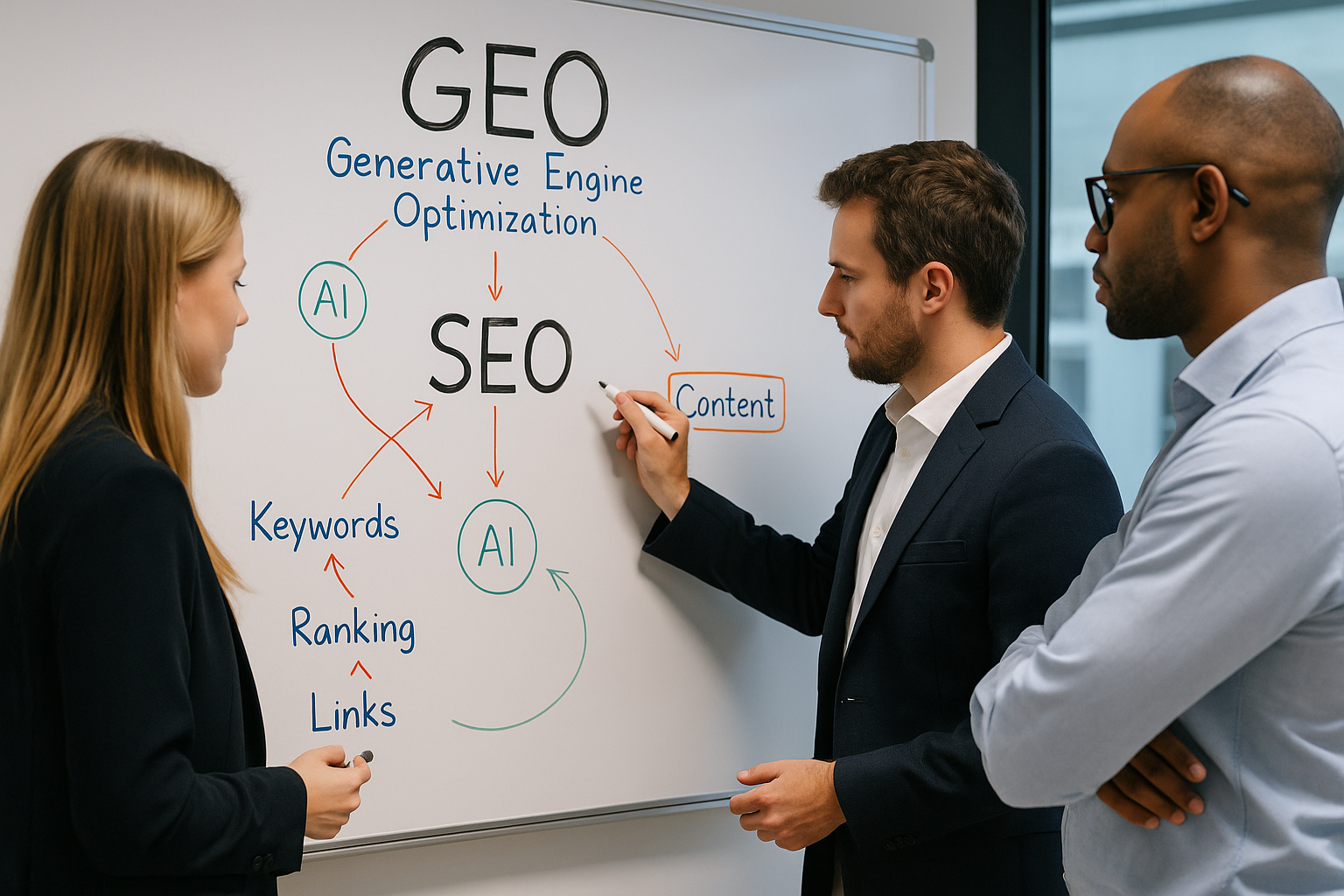
Search engine optimization (SEO) has long been the key to online visibility for entrepreneurs and small businesses. But with the rise of generative artificial intelligence (AI), a new approach is emerging: GEO, for Generative Engine Optimization. More than just an evolution of traditional SEO, GEO is redefining how content is created, referenced, and presented in next-generation search engines, such as those integrated with AI.
In other words, GEO no longer focuses only on the results pages, but on how AI will “cite” and use your content To build a response to the user.
GEO is not there to replace SEO, but to complement it. For freelancers, small businesses and startups, understanding this change is a unique opportunity to increase their visibility without getting lost in the competitive mass.
In summary: SEO makes you visible on Google, GEO makes you essential in the age of artificial intelligence.

The GEO aims to optimize content so that it can be taken up by AI engines (ChatGPT, Perplexity etc.), not only to appear in Google SERPs.

SEO targets Google rankings, while GEO targets responses generated by AI in smart assistants or browsers.

Structure clearly, use a natural and conversational tone, integrate FAQ and Q/A, and produce unique expertise.

By structuring its articles with clear titles, natural FAQs, and by publishing specific content that AIs can easily reproduce.